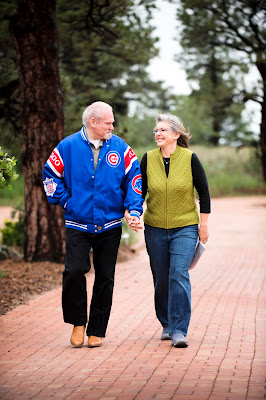This past weekend, Bryce Harper made the record books when he became one of the youngest players to play in Major League Baseball. For the past few years, he has been the game’s most anticipated recruit—explosive bat, a rocket for an arm, and the swagger of a superstar. As advertised, he contributed launching a double over Matt Kemp’s head.
His story reminded me of one of my favorite novels: The Youngest Hero by Jerry B. Jenkins. I had the privilege of discussing baseball, young players, and his novel. My questions appear below in black; Jerry’s answers in blue. Our conversation is divided into three categories.
BASEBALL
Did you get a chance to watch any highlights of Bryce Harper’s debut? What did you think?
I saw the game live on TV. Very impressed with his arm and the explosiveness of his swing. Much more impressive that when I saw him at the Futures Game at the all-star festivities in Phoenix last year. He was pressing and didn’t get on base, as I recall. One throw sailed way over the catcher’s head. And rumors were he had his own security detail. Major League Baseball (a scout told me) was a little miffed.
You wanted to play in the majors. What position(s) did you play?
First base.
What was your greatest on field success?
Had a 4-5 game with 4 ground rule doubles.
Had a 3-3 game with a grand slam, a solo HR, and a bases-clearing double with the bases loaded. 8 RBI.
And when I was a kid, our Little League all-star team finished fourth in Michigan in 1961 and first in 1962 (wow, fifty years ago this summer; I’m old) and missed going to Williamsport by one game. The team that beat us went on to finish second in the LL World Series.
Share a piece of advice (about life or baseball) you received from one of your baseball coaches?
“I’d rather see you swing at a bad pitch than take a good one.”
For what team or teams do you cheer now?
Cubs, Rockies, Yankees (no friend or relative can understand that one, but I so admire Jeter, Granderson, Rivera, Swisher, Girardi, Cano; you’ll notice I left out a prominent name—impressive talent, but I’m not a fan of cheaters).
 |
| Jerry (in his Cubs jacket) and his wife of more than 40 years, Dianna. |
What are your favorite ballpark activities when you go to a game? Keeping score?
Used to do that; gave it up. Technology makes it instantly available anyway.
Certain foods/beverages?
Love a Wrigley brat or polish.
Certain seats in the park?
I prefer sitting so close that I might be asked to play. Otherwise, I’d just as soon watch it at home on the big screen with all the replays, etc.
Clothing? Etc.?
Just comfortable. I do have a nice Cubs jacket. [see pic]
What is your favorite baseball analogy/word picture that applies to the spiritual life?
“It ain’t over till it’s over.” People make so much fun of Yogi [Bera] for that one, but in an untimed game, it’s true. (In basketball and football, for instance, there does come a point where changing the outcome is literally impossible; that’s never true in baseball). And it applies to life.
THE YOUNGEST HERO
I got an endorsement from Nolan Ryan that was so perfect they used it on the front cover: “Great story, but I don’t care how young he is, I’d still pitch him inside.”
Where did the germ of this idea come from?
Playing catch with son Dallas when he was 11 (25 years ago), he’s doing a play-by-play. “Dallas Jenkins goes back to the track and hauls it in!” And I’m thinking, isn’t that cute, he wants to be a big leaguer someday, the way I did. Then he adds, “The youngest player in the history of the Cubs fires the ball back in to the infield,” and I realized, he wants to be a big leaguer NOW. Could it happen? How young could a guy be, without bionics and angels and fantasy, and actually reach the majors?
I read that when the publisher was promoting the book, originally titled Rookie [1991, Wolgemuth & Hyatt], every advance reader’s copy came with a golf ball. What’s the best story you heard back from a reader who received one?
From the mother of a reader: “Enclosed is the bill for one window.”
[Blogger’s Note: You’ll just have to read the book. Trust me, this one scene is worth the price of the novel… and then some.]
In 1993, Disney released “Rookie of the Year” with an oddly similar premise (ouch!)—what if a teenager made the major leagues? About 20 years have passed since this movie. 22 years have passed since your book originally debuted. What challenges do you think Bryce Harper faces that Henry (in the movie) and Elgin (in the book) would’ve never imagined?
Probably just that the money and the media hype have multiplied exponentially in the last few years. Their lives would never be their own again.
WRITING
In this book, you used two simultaneous first-person narrators. Most writers are advised to avoid first person if possible, yet here you tackled two distinct voices—one a woman’s. Why?
I just played around with it and thought it worked. And actually it’s most beginning writers who are advised to avoid first person, because it’s very tricky and limiting.
What did you do to keep the voices clear in your imagination?
I found that part easy because they were so disparate: a young boy, an adult woman.
What did you learn about first person narration through the process?
I had written several first person novels before this (i.e., The Margo Mysteries—13 titles), so I was just reminded that the writer is limited to the eyes and ears and mind of the character speaking at that time. There could be no cheating, like, “Little did she know that at the same time, across town…” If she wasn’t there, the reader can’t be there.
As you paid your dues, did you ever write baseball game recaps?
I wrote up even the dice baseball games I played as a kid!
Then my professional writing career began as a sportswriter at age 14. Too young for a driver’s license, I had to be driven to the games and the newspaper office by my parents.
What have you learned about communicating the pace and tension of a game in the written word?
I think I’m intuitive when it comes to those two things. Probably from being raised on television. The mantra for fiction writers is: Make ‘em wait. In other words, keep pointing to the payoff, but take your time getting there.
You’ve worked along side baseball legends Hank Aaron, Nolan Ryan, Orel Hershiser, and Brett Butler. How did working on their biographies influence how you wrote/write now about baseball?
Being a professional athlete looks idyllic to the typical fan (which I was). In reality, they are people like everyone else, but their futures are tied up in how they perform every day. That’s pressure.
The novel is available here and the unabridged audio book is brilliantly voiced. This book is more than a baseball story. It’s a story of second chances, redemption, overcoming obstacles, and forgiveness.
Jerry B. Jenkins’ next adult novel is The Breakthrough, the third novel in the Precinct 11 Series.

Recent Comments